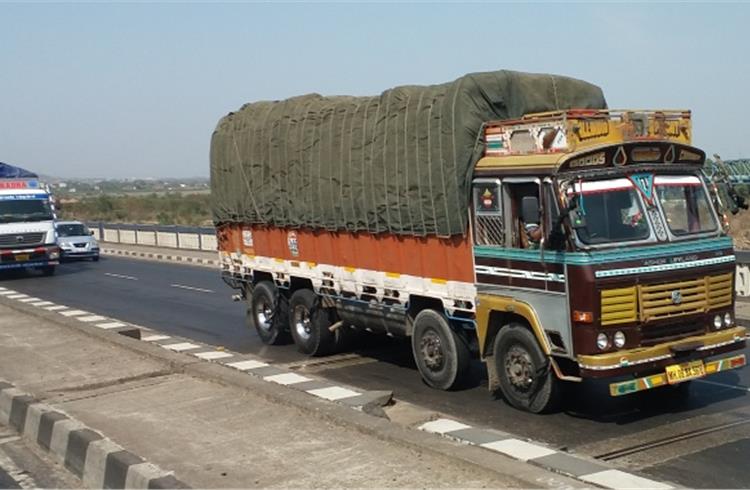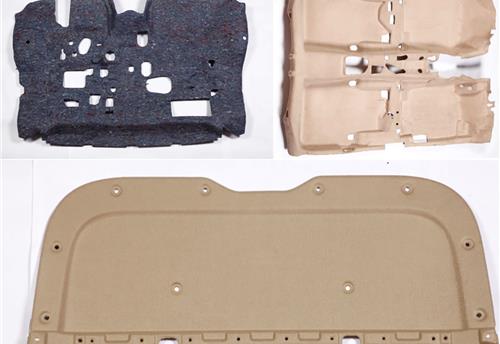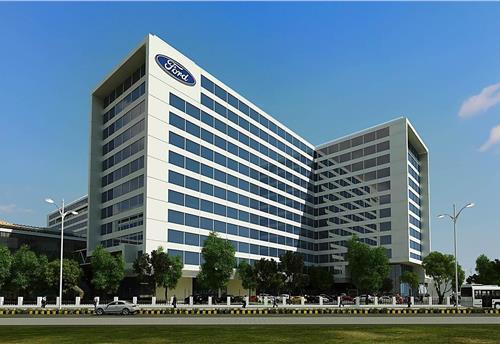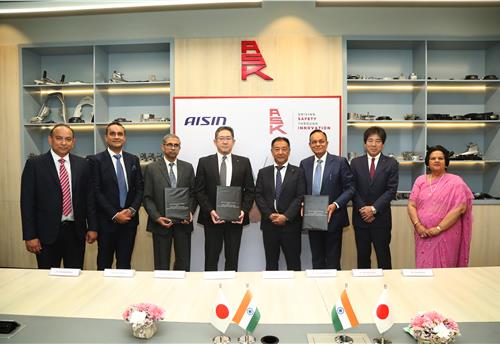SIAM in talks for notifying fuel efficiency norms for trucks and buses
An announcement to this effect is expected next year outlining the methodologies to be followed for testing on the roads the fuel consumption patterns using a constant speed velocity methodology.
The Society of Indian Automobile Manufacturers of India (SIAM) is in talks with the concerned stakeholders –the Ministry of Petroleum and Natural Gas, Ministry of Road Transport and Highways and Ministry of Heavy Industries – for notifying fuel efficiency norms for heavy duty trucks and buses to make them less of fuel guzzlers.
An announcement to this effect is expected next year outlining the methodologies to be followed for testing on the roads the fuel consumption patterns using a constant speed velocity methodology, Vishnu Mathur, director general of SIAM, told Autocar Professional.
He said that though this is not a very scientific method to assess fuel efficiency but there is pressure from the government to speed up the process in order to make all vehicles fuel efficient.
In fact the European Commission has been working for the past couple of years on a scientific simulation technique called Vehicle Energy Consumption Calculation Tool (VECTO) under a UN programme for calculating both fuel consumption and Co2 emissions from heavy duty vehicles as freight transport is the main form of emissions. But it will take some time to materialise. Transport within the EU contributes around one-fifth of its greenhouse gas emissions. Road transport accounts for the majority of around 80 percent of all transport emissions. The EU’s long-term objective is to reduce greenhouse gas emissions from transport by around 60 percent by 2050.
Meanwhile, in India a committee has been set up under the auspices of the Ministry of Petroleum and Natural Gas to finalise the roadmap and procedure for implementing these norms in around 2014, includes SIAM, the Bureau of Energy Efficiency and the Automotive Research Association of India as members.
The fuel economy of an automobile is the relationship between the distance travelled and the amount of fuel consumed by the vehicle to cover it. At an average, the fuel consumption of a truck or a bus ranges between 3-5kpl with the HCV running for 30,000-40,000km annually.
According to data from the Petroleum Planning and Analysis Cell (PPAC) of the Petroleum Ministry, in 2015-16, the petroleum product consumption in the country was 183.5MMT of which high speed diesel stood at 74.6MMT and motor spirit 21.8MMT. In 2014-15 the petroleum product consumption was 165.5MMT with 69.4MMT being diesel consumption. The transport sector consumed 48.62MMT of diesel in FY’15 which works out to about 70 percent of the total.
A report by Nielsen prepared for PPAC in 2013 on the sectoral demand for petrol and diesel had estimated through a sample survey that HCVs, LCVs and buses accounted for 38 percent of the diesel consumed. No recent data exists on the fuel consumption pattern in the transport sector according to PPAC and the Petroleum Conservation Research Association which are key players in outlining the fuel economy standards for HCVs.
Earlier the government had empowered the Bureau of Energy Efficiency under the Ministry of Power to notify fuel efficiency standards for passenger vehicles. The Ministry of Power had notified the Energy Consumption Standards for Motor Vehicles on January 30, 2014 under the Energy Conservation Act, 2001.
Fuel efficiency standards are based upon litre/100 km and are based on the CAFC (Corporate Average Fuel Consumption) approach for PVs. For heavy duty vehicles (HDVs) they will be based on the individual vehicle fuel consumption approach.
The first phase of the standards for PVs is up to 2017-18, the second phase extending from 2017-18 to 2022-23. The norms specify the standards for testing and determination of the fuel consumption of a motor vehicle. They also specify the enforcing body to regulate the notified fuel consumption standards.
It is believed that the overall average fuel efficiency of Indian passenger vehicles was around 14.5 km/l in the year 2000. The industry data of the year 2010 reveals that the average fuel efficiency of passenger vehicles sold in India improved to about 16.5 km/l. This improvement between 2000 and 2010 works out to 14 percent, on an annualised basis of 1.3 percent.
Rising incomes, growing government focus on infrastructure development and increasing economic activity are expected to fuel the demand for more commercial vehicles in India going forward and hence use of more diesel fuel.
According to an industry report, between 2012-13 and 2024-25, sale of buses is expected to grow at a CAGR of 5.7 percent to step up from 0.11 million to 0.21 million.
Truck sales are pegged to register strong growth of around 8.9 percent to grow from 0.80 million in 2012-13 to 2.23 million in 2024-25. The total number of on-road buses and trucks in 2025 is pegged to be around 23 million, according to an Indian Oil Corporation presentation.
Hence, a lot of potential exists in fixing targets for and implementing HDV fuel efficiency norms.
With Delhi already sounding the warning bell regarding growing pollution levels, particularly from commercial vehicles transiting the city, it is a matter of time before other states in the country start taking a closer look at the issue.
RELATED ARTICLES
Uniproducts India targets 15% growth till FY2027, eyes new EV OEMs for NVH parts
The Noida-headquartered company, which is a leading manufacturer of roof liners, floor carpets, sound insulation materia...
Ford to build more EV software capability at Chennai tech hub
Ford Business Solutions India, which currently employs 12,000 personnel set to add 3,000 more; Ford, which is known to b...
ASK Automotive to set up JV with Aisin to sell aftermarket parts for cars
Ask Automotive will have 51% of the equity of the joint venture to be set up with Aisin Asia (Thailand) Company and Aisi...





 By Shobha Mathur
By Shobha Mathur
 10 Jun 2016
10 Jun 2016
 11308 Views
11308 Views









